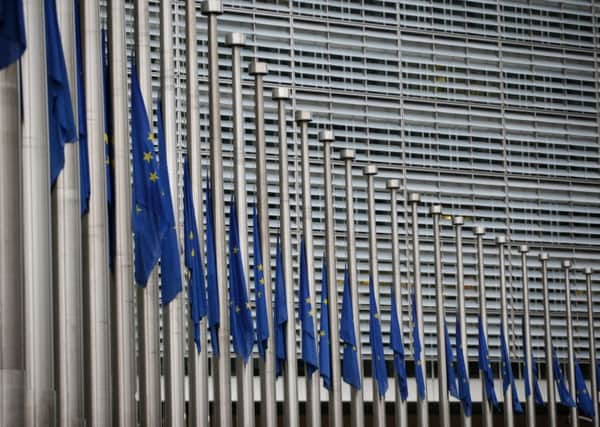Brexit '˜won't cut through red tape' says farm consultant
This article contains affiliate links. We may earn a small commission on items purchased through this article, but that does not affect our editorial judgement.


Speaking in Edinburgh yesterday, King said it was extremely unlikely there would be any “bonfire of red tape” after the UK left Europe.
While there is a reputed 80,000 pages of EU regulations, he said he doubted whether there would be time to “re-write, review or delete” these. He predicted the UK would most likely implement a “retain and reform” model with EU legislation rolling over to be gradually adapted to UK circumstances over time.
Advertisement
Hide AdAdvertisement
Hide AdPoliticians – keen to show Brexit has brought benefits – might try and repeal some major pieces of regulation such as the water framework directive, the working time directive or the nitrates legislation but King doubted if there was a political will to even tackle those areas.
In a wide ranging assessment of how life outside the EU could be in the future, he also raised the probability of the UK having to accept European rules in exchange for access to the single European market.
While farmers and farm leaders had last month taken comfort from an assurance from the Chancellor of the Exchequer that support payments would continue to the year 2020, King raised doubts about the statement.
The EU works within the Multiannual Financial Framework and this will run out after 2019, he pointed out.
He added another doubt in that, while Scotland gets 16 per cent of the common agricultural policy cash given to the UK, that funding formula might not continue to be used after the UK has left Europe. It was not inconceivable he suggested that the Barnett formula used for dividing up UK fund to devolved parts of the UK might be used instead. If that was the case, then Scotland would get 10 per cent of the agricultural budget.
“If I was farming, I would only bank on the current support continuing for the next three years that is to 2019,” he said.
Just what kind of support scheme might replace the current one will only become clear in the coming months and years although UK farm minister George Eustice has already expressed support for what is being called the Canadian model which is based on farmers insuring their crops.
With agriculture a devolved issue, it could be that support for farming in Scotland might be totally different from that in England. King said he would not be surprised to see direct subsidies south of the Border being cut in half post Brexit while Scotland might have more coupled support.
